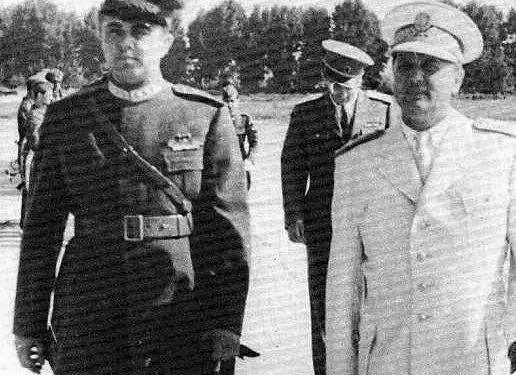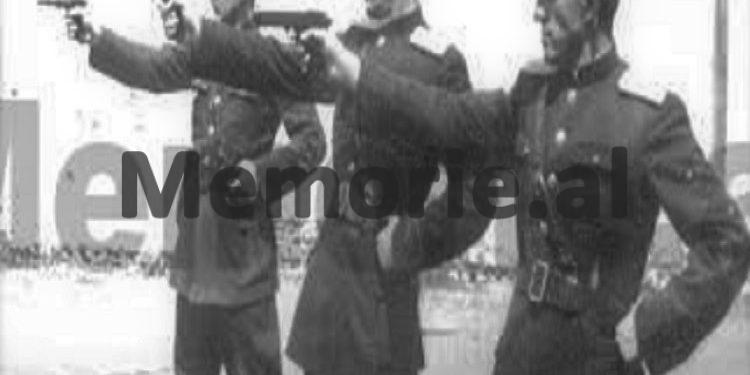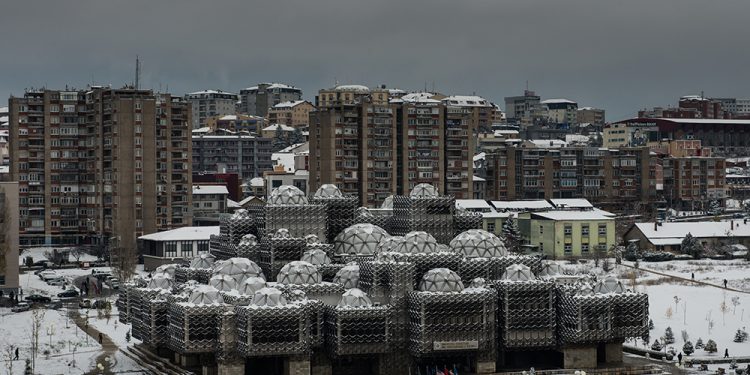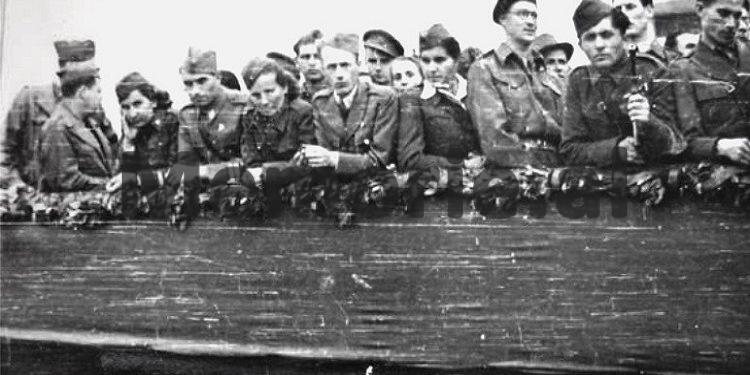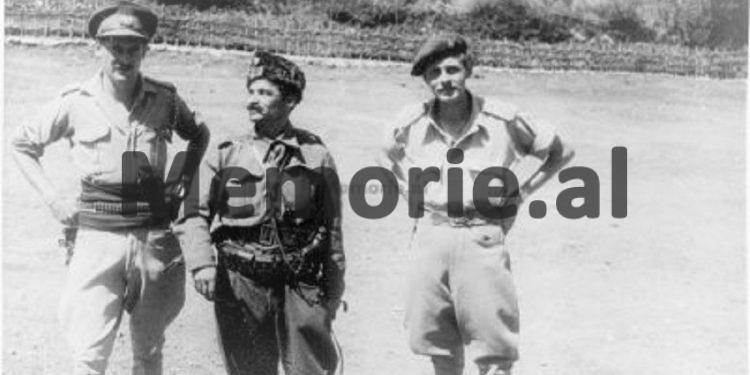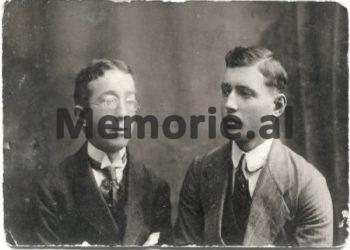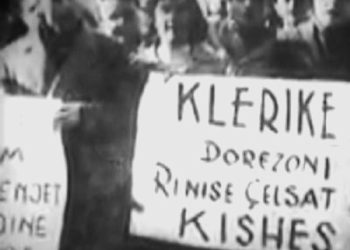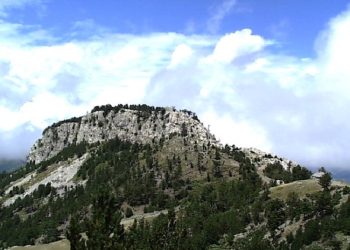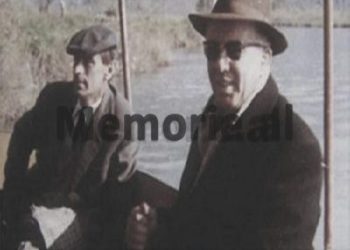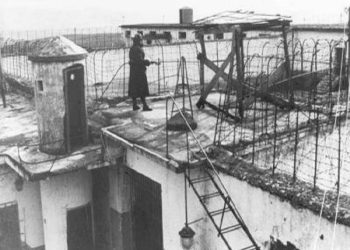BY JAMES PETTIFER
Memorie.al / After Tito’s break with Stalin in 1948, it was more than expected that Albania would turn the tables and break relations with Yugoslavia. In talks between Tirana and Moscow, Enver Hoxha, Mehmet Shehu and the Soviet ambassador in Tirana, Dimitri Çuvahin, had discussed the possibility of creating a military force to overthrow Tito. Mehmet Shehu had made it clear that the armed uprising would start from Kosovo. To create the necessary ground, Albania first had to create an espionage network in Kosovo and Yugoslavia. So it happened that Enver Hoxha started to recruit young Macedonian Albanians, to train them and then throw them into the field.
In his book “Kosovo Liberation Army – From a secret war to a Balkan uprising, 1948-2001”, historian James Pettifer shows how this network started to be created and the reasons for its failure. Pettifer brings us the story of one of the infiltrators, Zijadin Qiras, who unfortunately did not manage to complete his mission and serve his sentence of 12 years in the prisons of Yugoslavia. After the sentence, he emigrated to the United States of America, where he wrote the book “Cell number 31”, where he describes the suffering in Yugoslav prisons.
The adventurous life of a man like Zijadin Qira illustrates the Enverist paradigm for Kosovo in those years and the efforts of Tirana to start building a platform within Kosovo for a future uprising. Kira was born in 1932, in the village of Veleshte, in Macedonia, about 13 kilometers north of Struga and only eight kilometers from the border with Albania. Nowadays, Veleshta lies between regular corn fields, below the Qafë-Thanë crossing and has a dangerous reputation as a center of smuggling and illegal trade. Qira’s relatives had been low Ottoman officials in Struga and Ohrid, and some had left for Turkey in the period between the wars. The settlement on the hill was located just below the border crossing, between the two countries.
Veleshta has a history of violence and population displacement that dates back to before the Second World War. After the Serbian Army took control of Ohrid, in the Second Balkan War in 1913, and drove out the Bulgarians, hundreds of Albanians, especially those with high positions in the Ottoman system, fled Ohrid and Struga, to find refuge in the hills and to open the way for new Yugoslav Orthodox settlers. Many of these people were veterans of the Serbian Army, moved there from royal Belgrade, who were given land from the old Ottoman fiefdoms, north of Lake Ohrid, following the Roman model of military colonization.
Muslim Albanians soon became unwelcome in Ohrid, and Veleshta expanded, from a small pastoral community, to a large village of Ohrid exiles in those years. These declassified and isolated refugees in their own country, often originating from Beyler or Agallar lineages, were very open to radical ideas, whether nationalist or communist, more or less like in Greece, where the refugees from Asia Minor, after 1922, constituted an extremely large component of the initial leadership of the Greek Communist Party (KKE).
The same process also affected former Ottoman officials and landowners in southern Albania, thus prominent communist leaders from the south, such as Adil Çarçani, came from these displaced Ottoman landowner roots. At the time of the dissolution of the Axis occupation, Qira was an idealistic young man who wanted to fight for freedom.
He first met with Albanian partisans in the mountains above the village and then, at the age of sixteen, he went to Tirana to study at the new Military Academy that the communists had opened. Albanian partisan units were operating near the border and were recruiting Macedonian Albanians from the villages. Kira had witnessed punitive measures against the local Albanian population by the IV Bulgarian Brigade in 1944, in which over three thousand Albanians from the Struga area were killed.
Initially in the years 1946-47, his radical anti-Serbian and anti-Yugoslav views brought him danger in Tirana and he may have survived only because of the contacts he had with the family of Liri Belishova, the communist woman with a high position in Tirana, member of the Central Committee and an Albanian partisan heroine. But when the breakup of Yugoslavia with Stalin came in 1948, Qira’s hitherto radical anti-Yugoslav views turned into conventional wisdom in Tirana and, in one of his many political zigzags, Hoxha supported the Kosovo cause to some extent. , in her darkest hour.
As a line to provide a protective story, Zijadin Qira was part of a group at the Military Academy, selected to command the creation of cells to stage a “revolt” against Enver Hoxha and in favor of Tito’s views. This would be published and best exposed in the party press in Tirana. Afterwards, he would “escape” to the border with Yugoslavia, where he would seek political asylum.
Upon going to Kosovo, he would make every effort to infiltrate the Security Police and become a secret agent of Tirana. In the climate of deep repression that existed at the time and with the efficiency of the Yugoslav security apparatus, this enterprise was bound, inevitably, to end badly and, in 1951, Qira was arrested and accused of espionage by a military court, which sent him to long-term imprisonment.
At first glance, it might appear that this was a quixotic, over-ambitious and ill-planned endeavour. However, it begins to set the precedent for almost all future activity against Yugoslavia, organized by Albania, until the 1990s. In the 50s, the superpower behind the Albanian activism was Russia, in the 90s it was the United States.
Enver Hoxha could provide secret information on the ground, to gain favor with his superpower supporters. As the 1950s progressed, there was a shift in emphasis, with Tirana’s espionage priorities at Moscow’s expense derailing all efforts to build a resistance army. However, the ideal of a Kosovar army was never extinguished. The trial of 1956, for espionage in Pristina, enters this paradigm, although it is doubtful whether Noel Malcolm is right when he says that there was little evidence of Hoxist activity in this event. In a trial that was understood to be a demonstration, the Yugoslav authorities arrested and imprisoned several well-known Kosovars who were allegedly working with the Albanian secret service.
As a result, they served twelve years in prison. For an unpopular and beleaguered country like Albania, espionage was important, similar to the position of some countries in the world today, as evidenced by the status of the Mossad in Israel. In his later activity, Qira, as a long-time resident of the USA, remained a nationalist activist and played a prominent role in the last years of his life in New York City in building the Liberation Army of Kosovo.
After his release from prison and exile to the United States, Qira wrote that; “the only thing I was trying to do was to prepare the people for the inevitable decay of the Yugoslav communist regime… if I could organize the youth and prepare them for the time when they could ask for help from the West, we would to be a free country”.
His statement, seemingly simple, embodies some key themes in the mutual relationship between Albania and Yugoslavia at that time and the nature of the secret war, for a Kosovar insurgent army in the future. To prevent radical action, the Yugoslavs could rely on the ultra-conservative patriarchal Kosovar family, with its great Muslim fatalistic courage. The elderly in the villages had strong nationalist sentiments, as much as the young, but after the defeats for their cause in the period 1943-1949, they had little desire for direct resistance and even less ability to organize it that.
Their model of military resistance, of heroics on horseback, based on the nineteenth century squad, had been convincingly defeated in Drenica, by the mechanized fighting of the Titian partisans, in the years 1944-1949. Supporters for Enverist infiltrators, such as Qira, in the late 1940s and early 1950s, should include support for youth, as the post-1995 Kosovo Liberation Army was mostly supported to the young and to those who were very young. It would also require a new military model and a new military doctrine. The latter was in some way ready, in the form of communist theories of people’s war, but it was not at all clear how it could be implemented in Kosovo, where there was little Marxist consciousness and even less Marxist-Leninist political consciousness.
Until the 1960s, the main Maoist texts on guerrilla warfare, which would rewrite the entire doctrine of the issue, were unknown outside China. A potential Kosovar insurgent military leader, former Partisan commander Colonel Qamil Brovina, who had a revolutionary outlook and class consciousness, was in prison. The other partisan, the only Kosovar of the same rank, Fadil Hoxha, was more of a politician in uniform than a revolutionary soldier and a political opportunist, who had surrendered his fate to Tito and the Yugoslavs in 1948.
Second, Qira and his secret service supporters had the feeling from then on that the Yugoslav model of communism would not take root in Kosovo as a successful government any more than it had as an oppositional focus within Yugoslavia post-Axis and over time, would disintegrate.
The revisionist “reforms” under Tito after 1948 had already resulted in elements of traditional, low-scale capitalism. A key event was the decline and eventual collapse of Tito’s efforts to collectivize agriculture in the early 1950s. In Kosovo, this made it possible for large, threatened landowner families to keep some of their pre-1939 land and some of their urban property, in old Ottoman centers like Vushtrri…! Thirdly, Qira and his Security associates managed to understand, many years later, that Kosovo could not be freed from Yugoslavia, without external help from the West.
Russia and its many satellite states also had long-term strategic interests in Belgrade and the miserable fate of high-ranking partisans, such as Brovina, who had followed the Russian line in 1948 and were “against the Resolution” to leave the Cominform , was no incentive for others to follow them. Qira’s mission had a fatal ambiguity, in that it clearly served the priorities of the Hoxha government, to secure secrets from its new antagonistic neighbor and protect Albanian national interests through the Soviet alliance.
This was not the same issue as inciting the resistance in Kosovo. During the next forty years, this contradiction would never be satisfactorily resolved, either by Tirana or by the Kosovar radicals. Albania, as a friendly blood-close country with a permeable border, was asked to serve as a base for training, military supply, and recreation and entertainment, but the government in Tirana had broader international priorities than Kosovo, and this affected her attitude towards the illegal political war that was taking place there.
At times, the Kosovo war was at such low levels that it seemed crucial to help Tirana develop the resistance, at least simply to return Kosovo to stability (however unsatisfactory it was from the Albanian point of view) and to to prevent its destruction as an ethnic group, with an Albanian majority within Yugoslavia, with all the danger it could bring to the very borders of Albania. Other times, the priority was economic cooperation, as in the 80s, the KLA was under Albanian control. There was also the issue of what was “the West” from the perspective of the Kosovo Albanians.
“The West” for Albanians, first of all, meant the United States. Since the commitment of the president of the United States, Woodrow Wilson, for the survival of the Albanian state after 1913, in the period of the Treaty of Versailles, when many European powers would have liked to see it divided between Greece, Montenegro and Serbia , the United States always had a special role in the Albanian political pantheon, but as the Cold War unfolded, Tito’s Yugoslavia was seen in a positive light in the US and in the Cold War, Albania was within the Russian orbit and later in the Chinese one.
Little could be expected of the United States in 1950, except for one thing, the provision of a safe haven for Albanian and Kosovar refugees. The same was true of Britain, where Tito had other wartime connections with notables such as William Deakin and Fitzroy Maclean. The attitude of the British Communists towards Tito, after 1948, was particularly sectarian and dogmatic.
The party’s expert on Southeast Europe, James Klugman, had been in the Yugoslav section of the Special Operations Executive in World War II, in Cairo and Bari; later, he was the subject of various conjectures about his alleged role in directing SOE resources to help Tito rise to power. In one of the worst periods, Tirana actively cooperated with Belgrade, against the Kosovars, as it happened in the 80s, when militants fleeing to escape the Yugoslav police returned to Kosovo and committed long imprisonment.
In response to this, early on, Kosovars began to create informal networks of understanding, within the Albanian Labor Party and the main organizations in Albania, in particular with the security service, State Security and the Army. Often, these networks relied on well-known Albanians with family ties to Kosovo and the northeastern border districts, such as Tropoja, Dibër and Has, where there was a strong local patriotic tradition of military and police service and where older residents, they remembered without difficulty the life in the Ottoman vilayet system, before the existence of the national border of 1913, which divided the Albanian communities. Memorie.al




